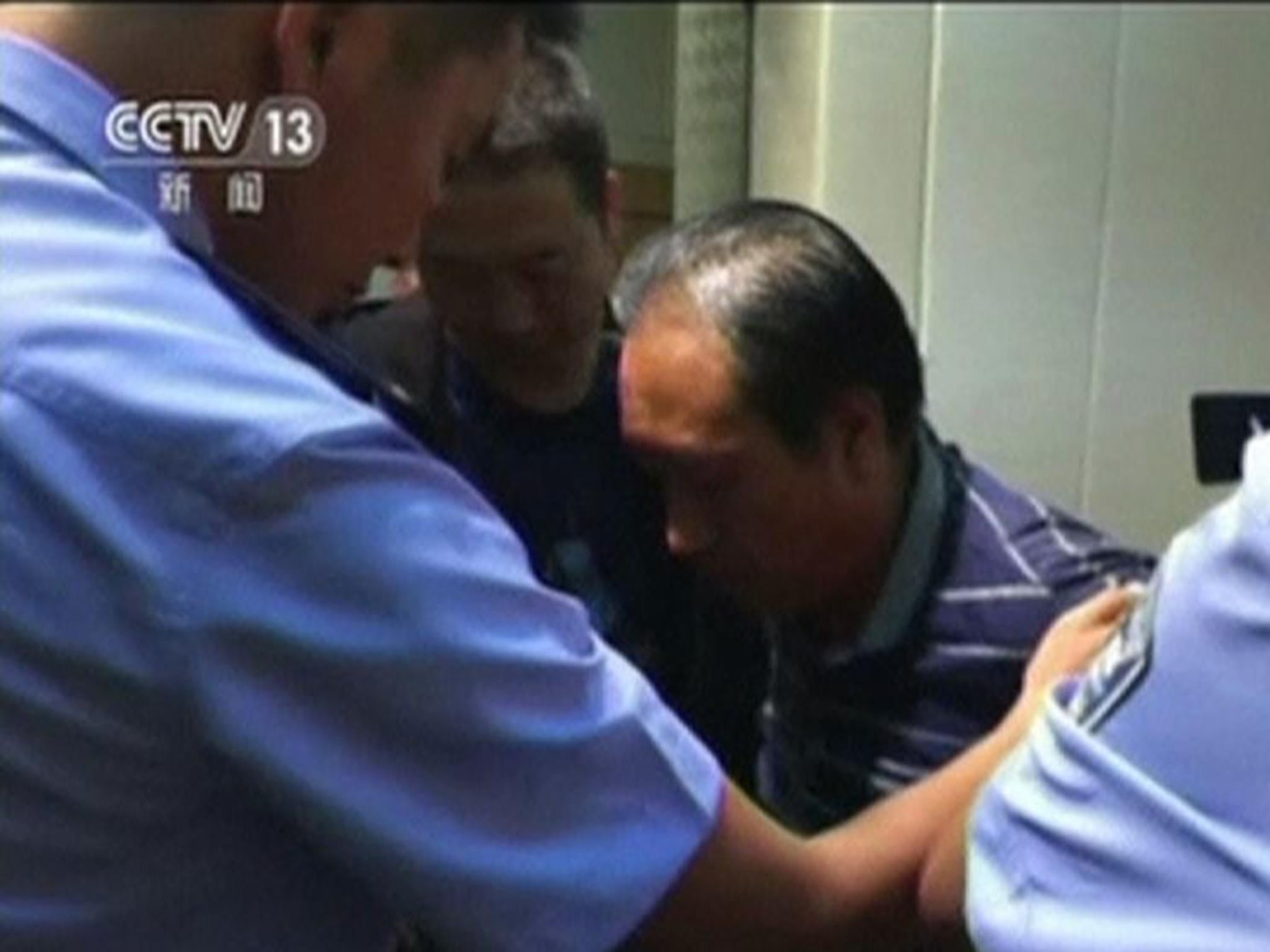China's 'Ripper' caught after DNA links man to murder of 11 women and girls
Gao Chengyong arrested in the grocery store he ran with his wife over brutal killings spanning 14 years

Police in China have caught the alleged killer of 11 women and girls.
Gao Chengyong is accused of raping and murdering the female victims in Gansu province and neighbouring Inner Mongolia in northern China between 1988 and 2002.
The 52-year-old mutilated many of his victims' bodies, leading local media to call him 'China's Jack the Ripper'.
The father of two was apprehended in a grocery store he runs with his wife in the city of Baiyin on Friday morning after a tip-off to police, the Ministry of Public Security said in a statement. He has admitted to the murders, police said.
Gao killed his first victim in May 1988. The 23-year-old woman was found dead in her home in Baiyin with 26 wounds to her body.
His other murders followed a similar pattern. Gao usually targeted young women who lived alone, following them home, raping them, and then killing them, according to newspaper reports. He tended to operate during the day, and often targeted women dressed in red.
His youngest victim was eight years old.
The attacks frightened women in Baiyin for over two decades, local media report, with many refusing to walk alone in the streets.
In December 2004, Baiyin police linked the 11 murders for the first time and offered a 200,000 yuan (£23,000) reward for information leading to an arrest.
Detectives said that based on DNA evidence, fingerprints and footprints, they were looking for a man aged 33 to 40.
“The suspect has a sexual perversion and hates women,” police said at the time. “He's reclusive and unsociable, but patient.”
Chinese media report that Gao was not found because he was not on record as living in Baiyin. No more killings were linked to Gao after 2002 and, with no leads, the case was closed.
In March last year the local government decided to reopen the investigation.
Yin Guoxing, a DNA expert, told China Daily USA that Gao was caught after Baiyin police arrested his uncle for a minor crime. The man's DNA was collected and tested, and police discovered he was a relative of the killer they had been seeking for 28 years.
According the South China Morning Post, acquiantances describe Gao as a quiet man -- emotionally distant, but respectful of his elders.
Gao’s elder son said he only saw his father once a year during the Lunar New Year festival.
“I’ve accepted this fact, but I cannot understand why he did it,” he told local media, when asked about the murders.
Gao's younger son said his father had experienced 'bitter suffering' in his youth.
Cui Xiangping, whose sister Cui Jinping was stabbed 22 times by Gao in 1998, told Beijing News that he had believed the case would not be solved.
Mr Cui said his mother, who found Ms Cui's mutilated body, could not stop crying after hearing the news of Gao's detention.
Although 18 years have passed, the family has never stopped thinking about his sister, he added.
Join our commenting forum
Join thought-provoking conversations, follow other Independent readers and see their replies
0Comments